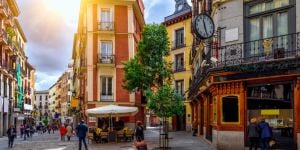Recognition of foreign qualifications in Spain
Last activity 25 June 2017 by claxnes
Subscribe to the topic
Post new topic
Articles to help you in your expat project in Spain
 Getting married in Spain
Getting married in SpainCongratulations! You have found the partner of your dreams and want to get married in Spain. And why not? The ...
 Traveling to Spain
Traveling to SpainYou're thinking about a new life abroad and all the opportunities it can bring, but before you relocate ...
 Customs in Spain
Customs in SpainBefore traveling to Spain for your new life abroad, you will need to be aware of the country's ...
 Working in Tenerife
Working in TenerifeAre you looking for a job in Tenerife? While there are certainly opportunities, especially for fluent Spanish ...
 Internet in Spain
Internet in SpainWhether for work or play or keeping in touch with friends and relatives abroad, getting online will most likely be ...
 Working in the Canary Islands
Working in the Canary IslandsThe Canary Islands is Spain's southernmost autonomous community, an archipelago in the Atlantic Ocean, more ...
 Popular neighbourhoods in Seville
Popular neighbourhoods in SevilleOnce you have decided to make the beautiful city of Seville your home, the next order of business is finding a ...
 Accommodation in Madrid
Accommodation in MadridMadrid, the bustling capital of Spain, is a popular destination for thousands of expatriates each year. With its ...



